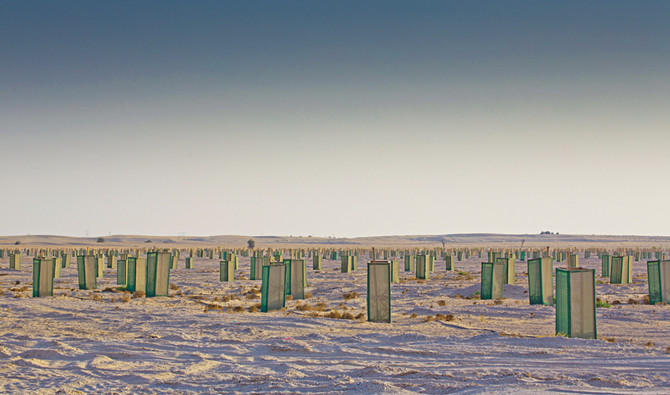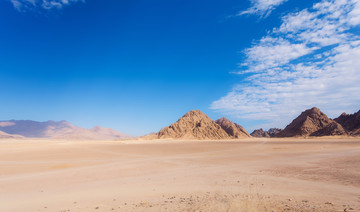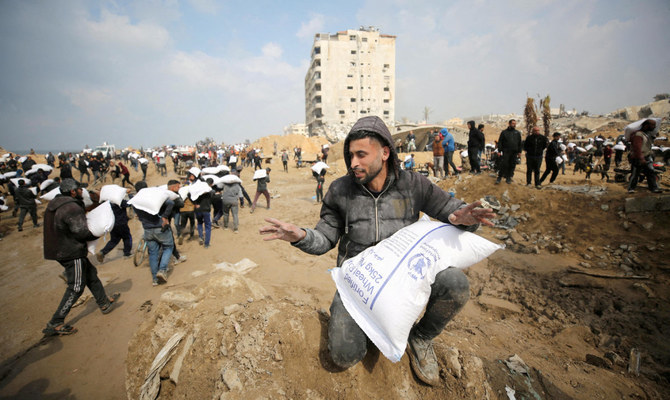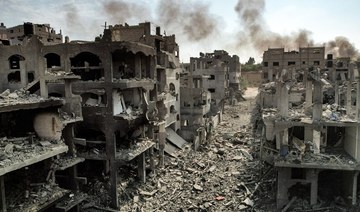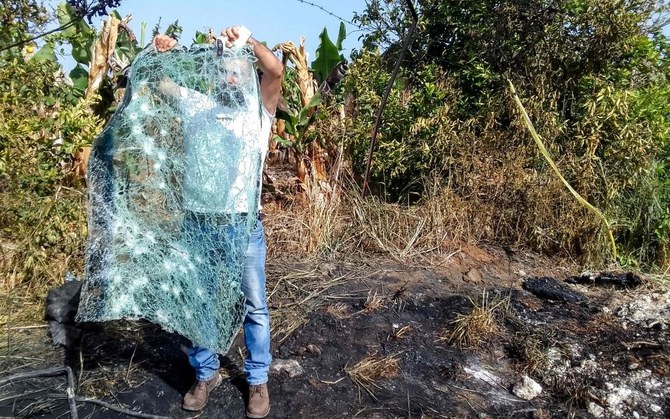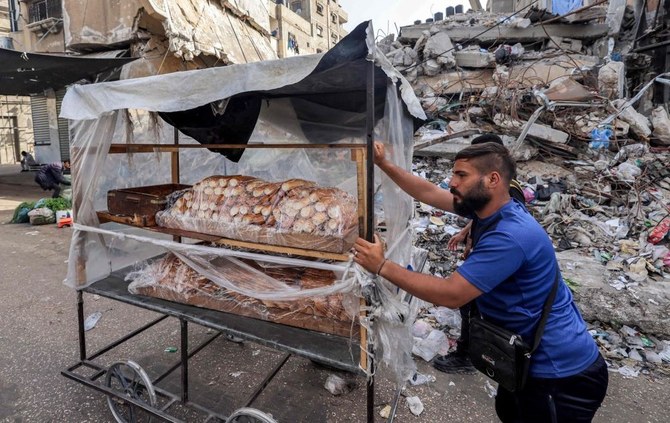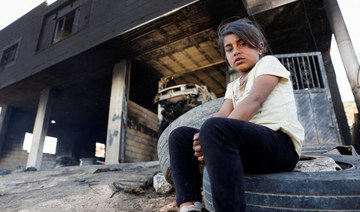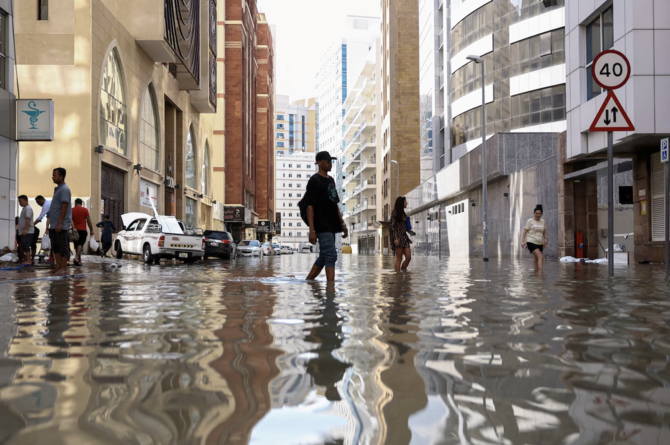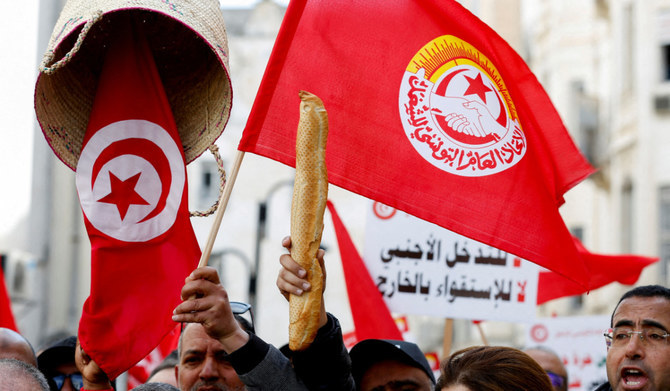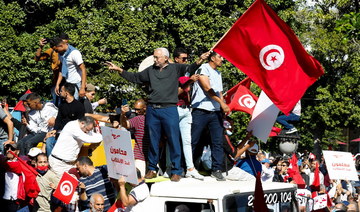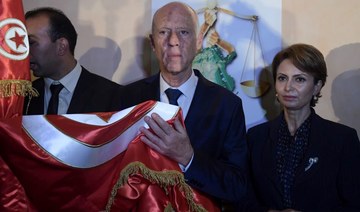DUBAI: More than 3.2 billion people, or two in every five, are affected by land degradation today and up to 143 million could move within their countries by 2050 to escape water scarcity and falling crop productivity caused by climate change.
These are the alarming figures provided this summer by the United Nations Convention to Combat Desertification (UNCCD). And with the report issued this week by the UN Intergovernmental Panel on Climate Change (IPCC) stating that the planet will reach a 1.5C increase in temperatures as early as 2030, leading to extreme drought, food shortage and floods, action must be taken.
“Land is worth so much more than the economic value we attach to it,” said Monique Barbut, UNCCD’s executive secretary. “It defines our way of life and our culture — whether we live in the city or villages. It purifies the water we drink. It feeds us. It surrounds us with beauty. But we cannot meet the needs and wants of a growing population if the amount of healthy and productive land continues to decline so dramatically.”
According to The Global Land Outlook of 2017, 45 percent of the food consumed globally comes from the world’s dryland areas and falling productivity, food shortages and water scarcity in these regions is creating insecurity. It warns that about 20 percent more productive land was degraded from 1983 to 2013, with Africa and Asia facing the greatest threats.
Desertification is the degradation of arable and productive
land, of which the region does not have much to begin with. The added use of intensive agriculture coupled with chemicals, pesticides and salt water, have worsened levels of land productivity.
“We consider desertification a major environmental problem but, in reality, it’s also economic and social in the region mostly,” said Dr. Azaiez Ouled Belgacem, regional coordinator of the Arabian Peninsula Regional Program at the International Center for Agricultural Research in the Dry Areas (Icarda) in Dubai. “We have a very precarious and harsh environment with very high temperatures, low rainfall and high humidity but it’s now worsening because of climate change.”
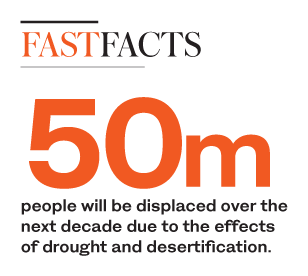 Belgacem, also a rangeland scientist, pointed the finger at socio-economic changes in the region, where pastural communities sustainably managed natural resources for centuries. Their mobility created a balance in the use of resources — called the hema system — allowing rangeland to rest for some period. “They followed rainfall and there was no intensive farming system — only fishing and date palms,” he said. “The movement is a rotational system and complements the use of resources and water.”
Belgacem, also a rangeland scientist, pointed the finger at socio-economic changes in the region, where pastural communities sustainably managed natural resources for centuries. Their mobility created a balance in the use of resources — called the hema system — allowing rangeland to rest for some period. “They followed rainfall and there was no intensive farming system — only fishing and date palms,” he said. “The movement is a rotational system and complements the use of resources and water.”
The discovery of oil and rising population wealth led to settlements and sedentarization, adding stress to lands. Subsidies increasing livestock numbers, coupled with herd mobility and overgrazing, led to further land degradation, loss of biodiversity and desertification. To date, a third of the world’s land is considered impacted by the phenomenon, excluding natural deserts. “It’s not a national challenge, it’s regional and global,” Belgacem explained. “Each country must establish its national strategy, which should build on international partnerships, because there are no borders in desertification.”
According to the UN, drought and desertification cause the annual loss of 120,000 sq kilometers of land globally — an area larger than the UAE, Kuwait, Qatar and Bahrain combined. It has become one of the dominant present-day environmental calamities, affecting hundreds of millions of dryland inhabitants and an area estimated between 1,000 to 3,000 million hectares. “This has a severe impact on food security, biodiversity, socio-economic stability and economic development,” said Diana Francis, atmospheric scientist at New York University — Abu Dhabi. “The Arab world contains around one third of the world’s deserts.
Most Arab countries have insufficient water resources, making the region especially vulnerable to desertification and drought. However, even with these risk factors, mismanagement of water resources and unsustainable land practices are rife across the region.”
She used Saudi Arabia as an example of an arid country with no rivers and a daily per capita water use double the European average. Iraq, considered a regional breadbasket in the 1970s, also lost a significant amount of its farmland to wars and neglect. “The effects of drought and desertification across the region are not only environmental, but also come at an extreme human cost,” she said. “Desertification not only causes loss of productivity with serious impacts on food production, future food security and economic development but also causes the release of greenhouse gases to the atmosphere, thereby accelerating global warming.”
Decomposition of soil organic matter and biomass during the past 7,800 years caused by land degradation and desertification has resulted in carbon dioxide emissions estimated at 450 to 500 gigatons, equating to more than the total amount of CO2 emitted from fossil fuel combustion so far. “The most vulnerable areas are along the coast of the Mediterranean, including Lebanon, Israel, Palestine and Turkey,” she said. “It also affects Iran, Kuwait and the UAE significantly.”
The UN estimates some 50 million people will be displaced over the next decade due to the effects of drought and desertification. Statistics estimate global soil degradation by 1 percent annually. “Desertification in the Middle East is caused mainly by four human actions linked to farming and agriculture,” Francis said. “They include overgrazing, overcultivating, deforestation and poor irrigation. Indirect causes of desertification include poverty, population growth and loss of traditional knowledge so public understanding is important.”
According to Dr. Taoufik Ksiksi, associate professor in biology at the United Arab Emirates University, too many wrong types of animals are overgrazing precious regional land, exposing the soil and increasing erosion by wind or water. “These are all anthropogenic problems,” he said. “The added issue is that we’re in a hyper-arid environment — plants grow very slowly and climate change worsens the situation. We don’t have the option to go beyond 1.5C in the future and we’re very close.”
He suggested acting aggressively in legislation to minimize overgrazing, while raising awareness on land management. Monitoring desertification will also prove key, much like the Long Term Ecological Research Network (LTER) in North America, where decades of data have been collected to monitor ecosystems’ health. “These aren’t present in the region and we need to do more on long-term sites where we monitor land yearly so we know where we’re heading,” he said. “Revegetation of a lot of land with native plants in the UAE, such as the Ghaf tree, and Saudi Arabia, with the Samer tree, local to the Gulf, the Andab, a grass-like species, and the Salam and Sidr trees, are promising practices for the recovery of the ecosystem’s health and we should set up protected areas to bring it back to its original status.”
Countries such as Saudi Arabia and the UAE have started planting trees. But it could take five to 10 years for them to affect the land. “Sand is invading the land,” said Dr. Muhammad Shahid, geneticist in the Plant Genetic Resources Program at the International Center for Biosaline Agriculture. “Trees help stop desertification and sand because they are a stabilizer of soil. They have good long root system, so it helps as a wind breaker, as wind is responsible for sand moving from place to place. But it needs funding and expertise, and it should be more of a priority.”
Abu Dhabi is also playing its part with Masdar City, promoting the mitigation of desertification from an ecological perspective. “As water is a key component within a desert environment, Masdar has recommended the treatment of greywater within private plots and sole use of treated sewage effluent within the public realm for landscape purposes,” said Peter Spellmeyer, landscape manager at Masdar City. “Masdar has endorsed a 70 percent minimum use of native and drought adaptive plant species. This sustainable approach will serve the community and fulfill shading requirements related to outdoor thermal comfort.”
Background:
In the Arabian Peninsula, land threatened by desertification ranges from 70 to 90 percent.
“The situation became more difficult with climate change, as even the resilience of the current ecosystem is threatened,” Belgacem said. “Some desert plants adapt to climate change effects up to a certain degree. But if we continue as is, that could stop by 2050. Science and technology must be used to counter this.”
The Gulf is considered a testbed and a laboratory for extreme weather conditions with a number of institutes working on developing solutions. Such conditions are said to take root in North Africa in the future, should no action be taken. “We are working on a 4C temperature increase, as we’re now expecting 1C to 2C,” he said. “We’re working with farmers in the Middle East and North Africa, and all dry areas of the world, including Sub-Sahara, west, south and east Asia, developing (systems) for agricultural drought and heat-tolerant varieties of wheat, barley and food legumes, as well as technologies to harvest rainfall water.”
The center is also attempting to revive the hema system with local communities and ministries. “We’re looking to establish different distributed water points in rangeland, and to close wells each season to have services in other areas for feed and animal health, and to encourage herders to graze in these areas. This would allow sustainably managed natural vegetation and carbon sequestration. Climate change has started its impact and it will disturb the cycle of plants.”


